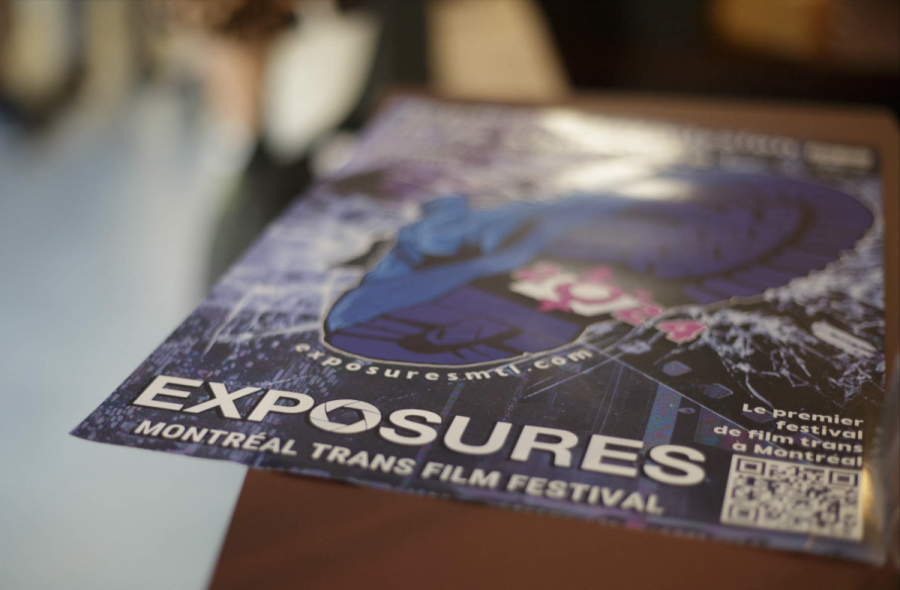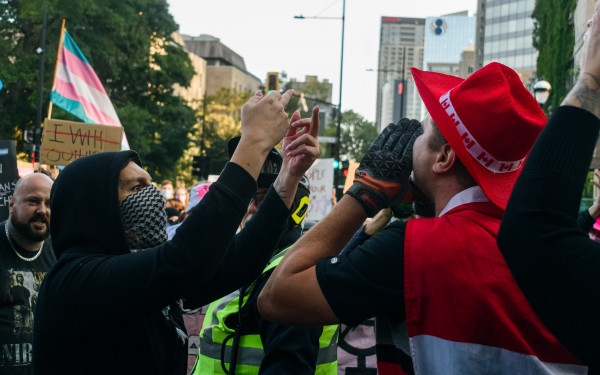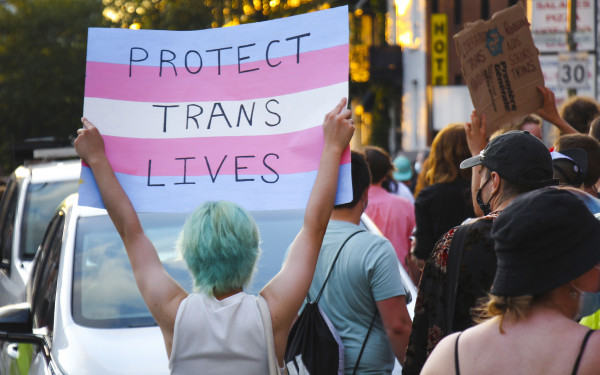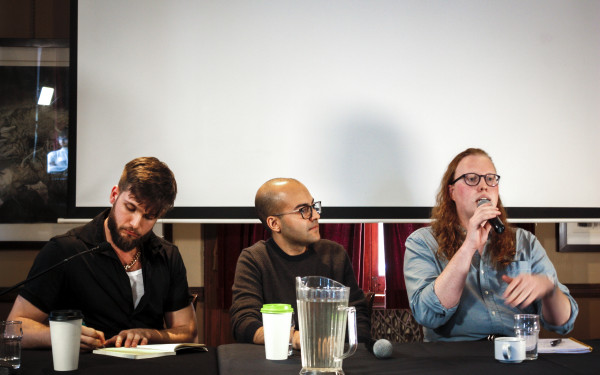Montreal debuts its first trans film festival
EXPOSURES presents a diverse array of films by trans, two-spirit and gender-diverse creators
Montreal’s inaugural trans film festival EXPOSURES was held at Espace Transmission between Sept. 19 and Sept. 22, showcasing 80 works created by or in collaboration with trans, two-spirit and gender-diverse filmmakers.
The event featured 13 screenings that included three features and 37 short films, attracting a large audience with its diverse lineup of films across different genres and languages. The theme of EXPOSURES was “breaking new ground,” which recognizes its inception as the first festival devoted to trans cinema in Montreal, and one of six to exist globally.
EXPOSURES was founded in 2023 by Iris Pint, a PhD candidate at McGill University studying trans and queer cinema. Since its inception, the collective has organized 20 screenings across Montreal, inspiring Pint to curate the four-day festival. The collective is dedicated to providing easy access to queer and trans-made media.
“I'm bringing these films to Montreal and I'm making them accessible,” Pint said. “We always have solidarity tickets to give for events; people who need a discount or who need to come for free can always e-mail us or DM us. [...] We always try to accommodate.”
Among the highlights were several Canadian premieres, including Dog Movie, which opened the festival on the evening of Sept. 19. Chicago-based director Henry Hanson joined a Q&A session after the screening of his improvised cringe comedy. About 150 people filled Espace Transmission’s loft space to see Dog Movie, which tells the story of a trans couple who have been hosting their friend Blue on their couch for six months, only to decide suddenly to adopt an elderly dog—also named Blue.
On Friday, Sept. 20, One Day League: Dead Mother, Dead All made its Canadian debut. The film was directed by Eugene Torres, a Manila-based filmmaker, and is a dramedy about an adoptive family coming together to reunite their all-queer volleyball team to fulfil the dying wish of the protagonist’s late gay adoptive mother.
That night brought another full house of about 150 people for Video Nasty, a body-horror-themed collection of shorts. Eleanor Anderson-Lafleur, one of the Video Nasty programmers and a self-proclaimed transfeminine movie nerd, introduced the screening.

“Body horror is a very trans genre, both because you know it's dealing with kind of the body not doing what you want it to and […] it offers up the possibility to consider new ways of inhabiting that body,” Anderson-Lafleur said. “It offers the possibility of the radical reconstruction [of] our bodies, and that's something we are very familiar with as trans people.”
Throughout the screening of Video Nasty, there were squeamish reactions and gasps of surprise from the audience, but continuous laughs throughout.
“When you have enough body horror on your own, it can be helpful to externalize it,” Anderson-Lafleur said.
One of the most talked-about short films was “Tastes Like Pork,” directed by Dante Dammit, about a cannibalistic cis woman determined to eat the penis of a trans woman. The film provoked many laughs, as well as grimaces and groans.
Another short film that caused strong reactions was “The Princess and the Peacock,” directed by Daniel Baker-Wells, which tells the story of Mona Guyard, a transfeminine “freak-show” performer. The film chronicles Guyard’s upbringing and her performance art practice in Berlin, which involves piercing her skin with peacock feathers.
Mia Poirier, an aspiring filmmaker, commuted from Longueuil for the Video Nasty screening.
“If they do it next year, I'm going to want to go,” Poirier said. “It's interesting, the whole link between queerness and weirdness and horror.”
Molly Maliszewski is the other Video Nasty programmer and one of the festival organizers. She said that having a festival focused on trans and two-spirit creators and stories is important in the current moment. Maliszewski explained that mainstream films, especially of the horror genre, tend to depict transness on the outside. She found it refreshing to see films that moved beyond the trope of transness being used as “shorthand for what is scary because it's like a transgression against a norm.”
“All those films together in a space full of trans people who were willing to engage with horror, that created something really special,” Maliszewski said. “It's horror movies made by trans people […] for other trans people, [without worrying] about explaining themselves to another audience.”






_600_375_90_s_c1.jpg)
